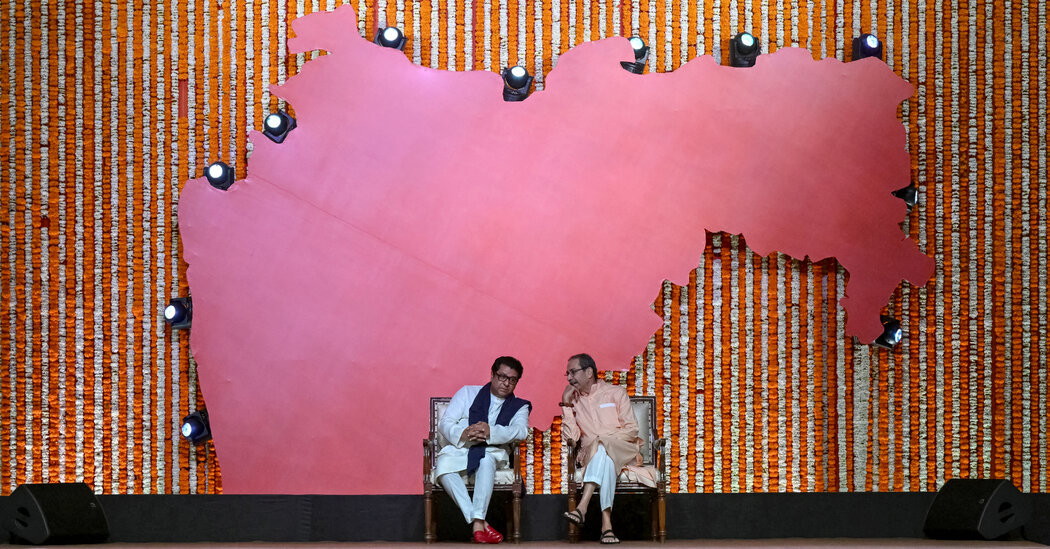

States worry that the imposition of Hindi, the main language of northern India, would wipe out their cultural heritage.
In India, the land of more than a thousand tongues, few things inflame passions more than language. Touching the hot button comes with political peril.
Just ask the government of Prime Minister Narendra Modi.
High-profile brawls have erupted recently over Mr. Modi’s push for the nationwide adoption of Hindi, the language of his power base in northern India and a symbol of his campaign to unify the country around the ideology of Hindu nationalism.
Late last month, the government of Maharashtra, a state in western India governed by Mr. Modi’s party, was forced to retract a policy requiring that Hindi be taught in elementary schools. Opposition politicians, residents and others had called the policy an affront to Marathi, the region’s native language.
In Tamil Nadu, a southern Indian state with a history of rioting over efforts to make Hindi mandatory, the chief minister has raged for months against an education policy pushed by the Modi government, claiming that it is trying to force students to learn the language. Tamil Nadu sued the central government in May after it said that it would withhold education funds until the state implemented the policy.
“It is common sense that pushing any one language will harm the national integration and unity of a linguistically diverse nation like India,” said Niranjanaradhya V.P., an activist who studies how education affects childhood development. “It is because of this imposition that there is so much resistance by people.”
Central government officials have been careful to emphasize publicly that India’s strength lies in its linguistic diversity. When they attack any of India’s languages, their target is English, calling it a legacy of colonialism that must be de-emphasized to build a new India.



